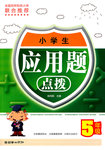In cities with rent control, the city government sets the maximum rent that a landlord (房东) can charge for an apartment. Supporters of rent control argue that it protects people who are living in apartment. Their rent cannot increase; therefore, they are not in danger of losing their homes. However, the critics say that after a long time, rent control may have negative effects. Landlords know that they cannot increase their profits. Therefore, they invest in other businesses where they can increase their profits. They do not invest in new buildings which would also be rent-controlled. As a result, new apartments are not built. Many people who need apartments cannot find any. According to the critics, the end result of rent control is a shortage of apartments in the city.
Some experts argue that the minimum wage law can cause problems in the same way. The federal government sets the minimum that an employer must pay workers. The minimum helps people who generally look for unskilled, low-paying jobs. However, if the minimum is high, employers may hire fewer workers. They will replace workers with machinery. Therefore, other things being equal, the number of workers that employers want decreases. Thus, critics hold the opinion that an increase in the minimum wage may cause unemployment. Some poor people may find themselves without jobs instead of with jobs at the minimum wage.
Supporters of the minimum wage say that it helps people keep their dignity. Because of the law, workers cannot sell their services for less than the minimum. Furthermore, employers cannot force workers to accept jobs at unfair wages.
Economic theory predicts the results of economic decision, such as decisions about farm production, rent control, and the minimum wage. The predictions may be corrected only if “other things are equal”. Economists do not agree on some of the predictions. They also do not agree on the value of different decisions. Some economists support a particular decision while others criticize it. Economists do agree, however, that there are no simple answers to economic questions.
1.There is the possibility that setting maximum rent may ________.
A. cause a shortage of apartments
B. worry those who rent apartments as homes.
C. increase the profits of landlords.
D. encourage landlords to invest in building apartments.
2.We can safely say that rent control ________.
A. will always benefit those who rent apartments.
B. is unnecessary.
C. will probably bring inactive effects in the long run.
D. is necessary under all conditions
3.There will be the problem of unemployment if ________.
A. the minimum wage is set too high..
B. the minimum wage is set too early.
C. the workers are unskilled.
D. the maximum wage is set for poor workers.
4.The passage tells us about ________.
A. the relationship between supply and demand.
B. the possible results of government controls.
C. the necessity of government control.
D. the urgency of getting rid of government control.
 应用题点拨系列答案
应用题点拨系列答案 状元及第系列答案
状元及第系列答案 同步奥数系列答案
同步奥数系列答案 应用题点拨系列答案
应用题点拨系列答案 状元及第系列答案
状元及第系列答案 同步奥数系列答案
同步奥数系列答案